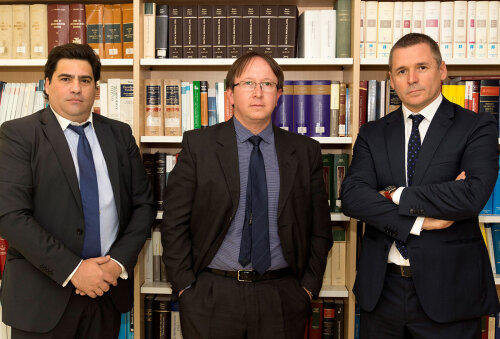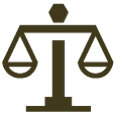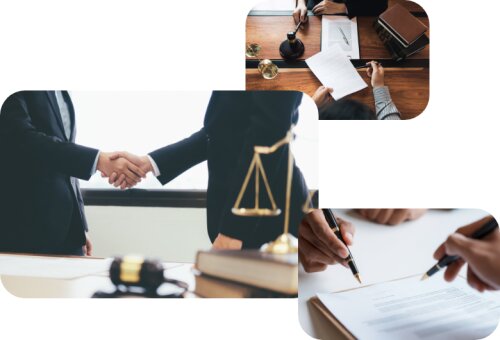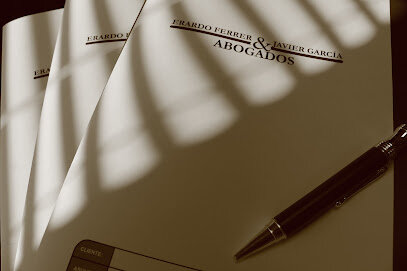Best Juvenile Law Lawyers in Spain
Share your needs with us, get contacted by law firms.
Free. Takes 2 min.
Or refine your search by selecting a city:
List of the best lawyers in Spain
About Juvenile Law in Spain
Juvenile Law in Spain is a specialized area of law that focuses on the treatment and adjudication of minors who engage in unlawful behavior. The legal framework is primarily designed to address offenses committed by individuals under the age of 18. It prioritizes rehabilitation and reintegration into society over punitive measures. The main legislation governing juvenile justice is the Organic Law 5/2000 on the Criminal Responsibility of Minors, which emphasizes educational measures as opposed to criminal punishment.
Why You May Need a Lawyer
Engaging the services of a lawyer who specializes in juvenile law in Spain may be necessary for various reasons. Common situations include defending a minor accused of a criminal act, navigating the complexities of the juvenile justice system, ensuring the rights of the child are protected, and seeking advice on potential legal repercussions. Additionally, legal assistance might be required if a minor is involved in civil disputes, including custody battles, adoption, or child protection cases.
Local Laws Overview
In Spain, the legal framework concerning juveniles is constructed with utmost regard for the best interest of the child. Some key aspects include:
- The age of criminal responsibility in Spain is 14 years.
- Minors between 14 and 18 are subject to a different set of legal procedures compared to adults, with a focus on educational and rehabilitative measures.
- The Organic Law 5/2000 outlines various corrective measures, such as therapeutic treatment, community service, curfew orders, and reparation of damages.
- Minors are ensured the right to legal defense and must be represented by a lawyer during proceedings.
- Confidentiality of proceedings involving minors is strictly maintained to protect their privacy and future opportunities.
Frequently Asked Questions
What is the age of criminal responsibility in Spain?
The age of criminal responsibility in Spain is set at 14 years old. Minors below this age cannot be held criminally responsible for their actions.
How are minors treated differently from adults in the Spanish justice system?
Minors are subject to the juvenile justice system, which focuses on rehabilitation and education rather than punishment. The legal procedures, rights, and potential consequences are tailored to protect juvenile offenders and aid in their reintegration.
What legal protections are given to minors during proceedings?
Minors have the right to legal representation, privacy, and special consideration during judicial proceedings. They are also entitled to participate in the proceedings and express their views.
Can minors be sentenced to imprisonment in Spain?
In severe cases, minors can be confined in juvenile detention centers. However, the duration and nature of confinement are more lenient compared to adult imprisonment, emphasizing rehabilitation.
What types of alternatives to detention exist for minors?
Alternatives include probation, community service, participation in educational programs, and therapeutic interventions, which are intended to effectively reintegrate the minor into society.
What role does family play in juvenile legal proceedings?
The family is actively involved in the process, with their support being crucial to the minor's rehabilitation and compliance with legal measures.
What happens if a minor reoffends?
Repeated offenses may lead to stricter measures and longer rehabilitation programs. However, the emphasis remains on correction rather than punishment, with the goal of preventing future offenses.
How does the juvenile justice system handle serious crimes?
Serious crimes are met with more stringent measures, though these still differ from adult penalties. The legal responses are carefully weighed to balance accountability and the potential for reform.
Can juvenile records affect future opportunities?
Juvenile records are typically sealed or expunged when the minor reaches legal adulthood, safeguarding future prospects in education and employment. However, serious offenses may have lasting records under certain circumstances.
How can I find a lawyer specializing in juvenile law?
It is advisable to seek referrals from legal aid centers, bar associations, or reputable law firms known for expertise in juvenile law. Public defender services may also be available for families unable to afford private counsel.
Additional Resources
The following are some helpful resources and organizations related to Juvenile Law in Spain:
- The Ministry of Justice of Spain for official legal documents and guidelines.
- Regional Juvenile Courts for information on local procedures and legal support.
- Non-governmental organizations such as Save the Children Spain that provide support and advocacy for children's rights.
- The Spanish Bar Association for finding legal professionals specializing in juvenile law.
Next Steps
If you find yourself in need of legal assistance in the field of juvenile law in Spain, consider the following steps:
- Contact a specialized juvenile law attorney for a consultation to discuss your specific situation.
- Gather all relevant documentation related to the case, including police reports, court notices, and any previous legal proceedings.
- Engage with local legal aid services if financial constraints impede accessing private legal counsel.
- Remain informed about the rights and responsibilities under Spanish juvenile law for both the minor and their guardians.
- Collaborate closely with legal experts, educators, and social workers to ensure the best outcome for the minor's future.
Lawzana helps you find the best lawyers and law firms in Spain through a curated and pre-screened list of qualified legal professionals. Our platform offers rankings and detailed profiles of attorneys and law firms, allowing you to compare based on practice areas, including Juvenile Law, experience, and client feedback.
Each profile includes a description of the firm's areas of practice, client reviews, team members and partners, year of establishment, spoken languages, office locations, contact information, social media presence, and any published articles or resources. Most firms on our platform speak English and are experienced in both local and international legal matters.
Get a quote from top-rated law firms in Spain — quickly, securely, and without unnecessary hassle.
Disclaimer:
The information provided on this page is for general informational purposes only and does not constitute legal advice. While we strive to ensure the accuracy and relevance of the content, legal information may change over time, and interpretations of the law can vary. You should always consult with a qualified legal professional for advice specific to your situation.
We disclaim all liability for actions taken or not taken based on the content of this page. If you believe any information is incorrect or outdated, please contact us, and we will review and update it where appropriate.
Browse juvenile law law firms by city in Spain
Refine your search by selecting a city.














